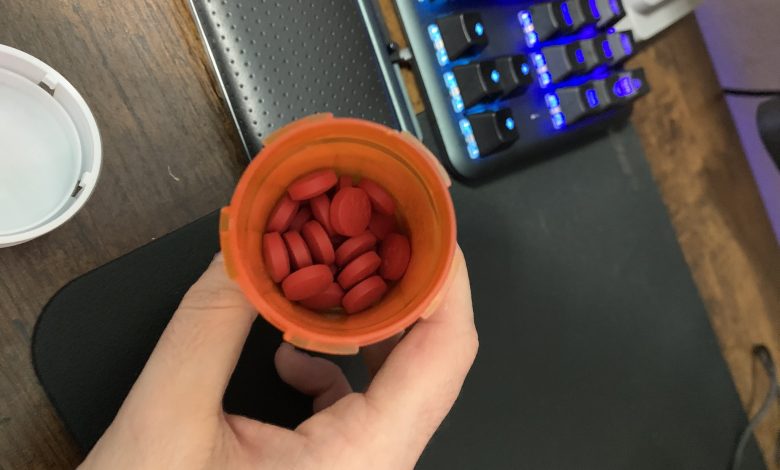What to Pair With Wellbutrin For Anxiety!

Anxiety is a pervasive mental health condition that affects millions of individuals worldwide. Managing anxiety involves a multifaceted approach, and while various therapeutic options exist, medications are frequently utilized to alleviate symptoms. Wellbutrin (bupropion), primarily an antidepressant, is occasionally prescribed off-label for anxiety.
However, its effectiveness may vary from person to person, and healthcare providers often explore combination therapy to enhance treatment outcomes. In this guide, we will delve into the complexities of managing anxiety, the role of Wellbutrin, and explore potential adjunct treatments for a more comprehensive approach.
Types of Anxiety Disorders
Anxiety disorders encompass a spectrum of conditions characterized by excessive worry, fear, and apprehension. Common types include:
1. Generalized Anxiety Disorder (GAD): Persistent and excessive worry about various aspects of life, often disproportionate to the actual situation.
2. Panic Disorder: Recurrent, unexpected panic attacks, accompanied by intense fear and physical symptoms such as palpitations, sweating, and shortness of breath.
3. Social Anxiety Disorder: Intense fear of social situations, leading to avoidance of social interactions.
4. Phobias: Excessive fear of specific objects, situations, or activities.
5. Obsessive-Compulsive Disorder (OCD): Intrusive, unwanted thoughts (obsessions) and repetitive behaviors or mental acts (compulsions) performed to reduce anxiety.
6. Post-Traumatic Stress Disorder (PTSD): Results from exposure to a traumatic event, leading to flashbacks, nightmares, and severe anxiety.
Impact on Daily Life
Anxiety can significantly impact various aspects of daily life, affecting relationships, work performance, and overall well-being. While psychotherapy is often a cornerstone in anxiety management, medications can play a crucial role, especially in cases where symptoms are severe or significantly impair functioning.
Wellbutrin (Bupropion) for Anxiety
Mechanism of Action
Wellbutrin is primarily classified as an atypical antidepressant that differs from the more commonly prescribed selective serotonin reuptake inhibitors (SSRIs) and serotonin-norepinephrine reuptake inhibitors (SNRIs). Its primary mechanism of action involves the modulation of norepinephrine and dopamine levels in the brain.
1. Norepinephrine: By inhibiting the reuptake of norepinephrine, Wellbutrin increases its availability in the synapses, enhancing neurotransmission. Norepinephrine plays a role in regulating mood and the body’s “fight or flight” response.
2. Dopamine: Wellbutrin also inhibits the reuptake of dopamine, a neurotransmitter associated with motivation, pleasure, and reward.
Off-Label Use for Anxiety
While Wellbutrin is not FDA-approved for the treatment of anxiety disorders, some healthcare providers may prescribe it off-label for individuals who do not respond well to traditional anxiolytics. The rationale behind this lies in Wellbutrin’s unique mechanism of action, which differs from the serotonin-focused mechanisms of many other antidepressants.
Individual Variability in Response
Responses to Wellbutrin can vary widely among individuals. Some may experience a significant reduction in anxiety symptoms, while others may not find it as effective. Factors such as genetic predisposition, overall health, and the specific subtype of anxiety disorder can influence individual responses.
Side Effects of Wellbutrin
Like any medication, Wellbutrin is not without side effects. Common side effects include insomnia, dry mouth, headaches, and nausea. Notably, Wellbutrin is less likely to cause sexual side effects compared to some other antidepressants. However, it may increase the risk of seizures, especially in individuals with a history of seizures or certain medical conditions.
Combining Wellbutrin with Adjunct Treatments
While Wellbutrin may be effective for some individuals with anxiety, it is often used in conjunction with other medications or therapeutic strategies to optimize outcomes. The choice of adjunct treatments depends on various factors, including the nature and severity of anxiety symptoms, the presence of co-occurring conditions, and the individual’s overall health.
Selective Serotonin Reuptake Inhibitors (SSRIs) or Serotonin-Norepinephrine Reuptake Inhibitors (SNRIs)
1. SSRIs: Common SSRIs include sertraline (Zoloft), fluoxetine (Prozac), and paroxetine (Paxil). SSRIs primarily increase serotonin levels in the brain, which can have an anxiolytic effect.
2. SNRIs: Examples include venlafaxine (Effexor) and duloxetine (Cymbalta). SNRIs target both serotonin and norepinephrine, offering a dual mechanism of action.
Consideration: Combining Wellbutrin with an SSRI or SNRI can provide a comprehensive approach by targeting both norepinephrine and serotonin pathways. However, careful monitoring for potential side effects and interactions is essential.
Benzodiazepines
1. Examples: Clonazepam (Klonopin), lorazepam (Ativan), diazepam (Valium).
2. Mechanism: Benzodiazepines enhance the effect of the neurotransmitter gamma-aminobutyric acid (GABA), producing a calming effect.
3. Consideration: Benzodiazepines are often used for short-term relief of acute anxiety symptoms due to their fast-acting nature. However, their use is limited to avoid the risk of tolerance and dependence.
Buspirone
1. Mechanism: Buspirone is an anxiolytic that affects serotonin receptors.
2. Consideration: Buspirone may be considered in individuals who do not respond well to or cannot tolerate other medications. It is often used as an augmentation strategy for anxiety.
Gabapentin or Pregabalin
1. Mechanism: Originally designed to treat seizures and neuropathic pain, these medications can also have anxiolytic effects.
2. Consideration: Gabapentin or pregabalin may be considered in cases where other medications are not suitable or effective. These medications are particularly useful for individuals with comorbid anxiety and chronic pain conditions.
Antipsychotics
1. Examples: Quetiapine (Seroquel), olanzapine (Zyprexa), aripiprazole (Abilify).
2. Mechanism: Some atypical antipsychotics have anxiolytic properties.
3. Consideration: Antipsychotics, in low doses, may be used to augment the effects of antidepressants for anxiety. However, their use requires careful monitoring due to the potential for side effects.
Beta-Blockers
1. Examples: Propranolol, atenolol.
2. Mechanism: Beta-blockers primarily block the effects of adrenaline, reducing the physical symptoms of anxiety.
3. Consideration: Beta-blockers are often used for performance anxiety or situational anxiety. They may be prescribed in addition to Wellbutrin to address specific symptoms.
Lifestyle Modifications and Non-Pharmacological Approaches
While medications play a crucial role in managing anxiety, lifestyle modifications and non-pharmacological approaches are equally important. These strategies can complement medication therapy and contribute to long-term improvements in mental health:
1. Cognitive-Behavioral Therapy (CBT): CBT is a well-established therapeutic approach for anxiety disorders. It helps individuals identify and change negative thought patterns and behaviors contributing to anxiety.
2. Mindfulness and Relaxation Techniques: Practices such as deep breathing, progressive muscle relaxation, and mindfulness meditation can help calm the mind and reduce anxiety.
3. Regular Exercise: Physical activity has been shown to have positive effects on mood and can be an effective adjunct to medication therapy.
4. Healthy Diet: Nutrient-rich foods, such as those high in omega-3 fatty acids, can support brain health and contribute to overall well-being.
5. Adequate Sleep: Establishing good sleep hygiene practices can significantly impact anxiety symptoms. Wellbutrin’s potential to cause insomnia should be considered, and adjustments may be necessary.
6. Social Support: Building a strong support system through friends, family, or support groups can provide emotional assistance in managing anxiety.
Considerations for Individualized Treatment
1. Genetic Factors: Genetic variations can influence an individual’s response to medications. Genetic testing may provide insights into how someone is likely to metabolize and respond to certain drugs.
2. Co-occurring Conditions: The presence of co-occurring conditions, such as depression, substance use disorders, or chronic pain, can influence treatment decisions. An integrated approach that addresses all relevant aspects of mental health is crucial.
3. Side Effect Profiles: Each medication has its own side effect profile, and individuals may tolerate certain medications better than others. Close monitoring and communication with a healthcare provider are essential to manage side effects effectively.
4. Long-Term vs. Short-Term Treatment: The duration of treatment is an important consideration. While some individuals may only need short-term medication for acute symptoms, others may require longer-term or maintenance therapy.
Conclusion
Managing anxiety with medication involves careful consideration of various factors to tailor treatment to the individual’s needs. Wellbutrin, with its unique mechanism of action, is sometimes used off-label for anxiety, either alone or in combination with other medications. The choice of adjunct treatments depends on individual factors, including the nature and severity of symptoms, co-occurring conditions, and the person’s overall health.
Combining or pairing Wellbutrin with medications like SSRIs, benzodiazepines, or other anxiolytics can provide a comprehensive approach by addressing different neurotransmitter pathways. However, the potential for interactions and side effects necessitates close monitoring by healthcare providers.
Lifestyle modifications, therapy, and non-pharmacological approaches are integral components of anxiety management. These strategies contribute to overall well-being, complement medication therapy, and provide individuals with tools to cope with anxiety in the long term.
As research continues to advance, new medications and treatment modalities may emerge, offering additional options for individuals with anxiety disorders. However, the importance of personalized, patient-centered care remains paramount in ensuring optimal outcomes for those seeking relief from anxiety symptoms. Always consult with a qualified healthcare professional to determine the most suitable treatment plan based on your individual needs and circumstances.





